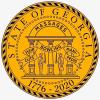A Very Short History of Athens and UGA
Pub Notes

Photo Credit: Eisenhower Presidential Library
Dwight D. Eisenhower was the perfect president for Athens in the 1950s.
Last week’s column about the adventures of Sonny and Pete in college was so well received—Sonny loved it—that a follow-up seems merited, since this is the second of Flagpole’s back-to-school issues.
The most striking thing that comes to mind about UGA in the late 1950s is how isolated it was within its host city of Athens. Downtown certainly had its places that catered to students: clothing, shoes, newspapers, magazines, school supplies, printing, telegrams, movies, banks, poolrooms, a couple of off-limits beer joints, churches, the few restaurants and the department stores—long before they fled to the mall. But it was sort of a destination downtown; you went there because you needed an umbrella or a shoeshine or some money.
Otherwise Athens didn’t exist, except for the upperclasspersons who lived off campus. Freshmen had to live on campus and could not have cars—another reason Athens was invisible.
There was a city government, but it rarely impinged, except occasionally, like that night the drunk Sigma Nus (were there any other kind?) stole a National Guard tank and menaced the downtown area. And there was a state government, which failed to impinge the night a student mob forced the first black woman student out of her dorm. There was even a national government, but it was presided over by the grandfatherly Dwight D. Eisenhower, who would never have stooped to governing by tweet, even if he’d had it.
UGA in the late ‘50s was a small, ingrown Southern college. The faculty, mostly men, all white, were distinguished by their old, out-of-fashion suits and ties, as if all haberdasheries had been wiped out by World War II. Then, as now, football was the biggest thing on campus, it just wasn’t nearly as big as it is now. The stadium was still its original size, nestled into the natural bowl between the hills and not yet festooned with upper decks, skyboxes, the bridge, the jumbotron. Uga was still a slender dog, capable of walking.
Athens at that time was still more or less intact, its intown neighborhoods crammed with fine old houses, where students had replaced the gentry and maybe occasionally tore a house up but never tore one down. That honor fell to the developers, who changed the name of the Classic City to Advancing Athens, and bulldozers led the advance. They knocked down the stately old houses and threw up the squalid little buildings that since have been the face of commercial Athens.
Things changed nationally with the election of John F. Kennedy, who pledged to get America moving again after Ike’s eight boring years. Shortly afterward, Hamilton Holmes and Charlayne Hunter became the first black undergraduate students enrolled at UGA (not counting all the students from Africa and elsewhere who had long and peacefully attended).
Things even changed in state government by the early '60s with the demise of the old county unit system, which had given the small, rural counties a stranglehold on elections (which they still have, come to think of it). While the rural counties were looking the other way, we elected Carl Sanders, a governor who actually believed the state needed a better university and made the money available. That’s when UGA (and Athens) really began to change. Young teachers from outside Georgia, outside the South, joined the faculty, as the university expanded and awakened from its genteel sleep. The coming of the Vietnam War caused an increasing political awareness as the national government impinged with the draft that could send a Sigma Nu to ride in a real tank in the jungle, or more probably on foot.
By the time that war ended, the university was transformed by student activism and professorial intellectual enthusiasm. A music scene that preceded THE music scene was giving students a reason for going downtown at night—or at least to Normaltown—and changing laws added alcohol to the mix, which meant more restaurants, bars and clubs. Later, the exodus of stores to the mall left downtown with cheap rents for lofts, studios, practice spaces, etc., and behold: Students had reasons for getting to know Athens.
If you want to hear more about how Athens became Athens, be sure to catch the next showing of the locally made film Athens in Our Lifetimes. I think there’s one coming up at the ACC Library before long.
Keywords
More by Pete McCommons
-
Voting Absentee: Necessary But Not Easy
Pub Notes
-

Be Ready When National TV Comes Calling
Pub Notes
-










comments